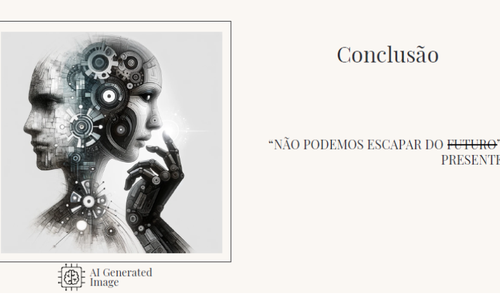
Mais rápida, mais precisa e eficiente
A agora barulhenta revolução da IA no setor financeiro

A INTELIGÊNCIA ARTIFICIAL CHEGOU AO ESTOQUE FISCAL
Atualmente, a Inteligência Artificial (IA) já se encontra aplicada em diversos setores funcionais das empresas de atacado e varejo. Todavia, a área fiscal ainda carece de automação, dificultando a operabilidade e, consequentemente, a produtividade. Por essa razão, novas ferramentas vêm sendo disponibilizadas no mercado, sendo a IA o auge da tecnologia.
Não é novidade que, ao setor de atacado e varejo, se pressupõe o adimplemento de inúmeras obrigações fiscais, quais sejam, pagamentos de tributos, cumprimento de obrigações acessórias, lançamento de cupons fiscais, controle de estoque fiscal, dentre outras.
Por outro lado, o nível de exigência, aplicado à complexidade normativa-tributária, acarreta sérios problemas para a prosperidade empresarial, em essencial no Brasil. O alto custo da burocracia tributária é automaticamente repassado aos produtos e serviços, diminuindo consideravelmente a competitividade.
Nesse sentido, o Banco Mundial revela que o tempo gasto por empresas com obrigações tributárias em solo brasileiro varia de 1.483 a 1.501 horas/ano. Além disso, em pesquisa realizada pelo Instituto Brasileiro de Planejamento e Tributação (IBPT), restou-se constatado que existem em vigor no Brasil mais de 97 obrigações acessórias (conjunto de documentos, registros e declarações que são enviados ao Fisco), culminando no gasto empresarial de mais de R$ 60 bilhões por ano para manter pessoal, sistemas e equipamentos no acompanhamento das modificações da legislação.
Desta maneira, nunca se mostrou tão necessária a implantação de tecnologias capazes de atuar para além da atividade humana, garantindo a confiabilidade das operações e diminuindo o tempo gasto com obrigações fiscais.
A INTELIGÊNCIA ARTIFICIAL COMO REDUTORA DE CUSTOS
Os setores de atacado e de varejo, hoje, depreendem diversos gastos na contratação e manutenção de profissionais aptos a lidar com as mais diversas obrigações fiscais. Ressaltam-se, por exemplo, contadores, analistas fiscais, auditores fiscais, além de advogados tributaristas etc.
Isso porque, além de mais de 97 obrigações acessórias aos tributos principais (conjunto de documentos, registros e declarações que são enviados ao Fisco), cita-se a necessidade de controle de estoque fiscal, para fins de afastar toda e qualquer autuação da Receita Federal do Brasil (RFB).
Com isso, apura-se, aproximadamente, um gasto empresarial de R$ 60 bilhões/ano para manutenção de pessoal, de sistemas e de equipamentos no acompanhamento das modificações da legislação.
Diante deste panorama, é de se perceber que a Inteligência Artificial veio para suprir as necessidades fiscais do setor de atacado e varejo, automatizando todos os processos, seja pela diminuição abrupta da atuação humana, seja reduzindo em mais de 90% o tempo depreendido no cumprimento das obrigações acessórias fiscais.
A INTELIGÊNCIA ARTIFICIAL COMO DIFERENCIAL DA COMPETITIVIDADE
Diante da enorme quantidade de obrigações acessórias, além daquelas decorrentes do controle de estoque fiscal, é de constatar que a contribuição humana para o setor fiscal, no momento, torna-se imprescindível e inafastável.
Todavia, essa circunstância acarreta, sem dúvidas, na demora procedimental, no alto número de erros e incertezas quando do cumprimento dessas obrigações, além da consequente dificuldade do controle empresarial de fluxo de caixa.
Assim, a alocação da Inteligência Artificial é causa do diferencial de competitividade para a empresa que dela se beneficia. Isso porque, com essa tecnologia, os processos fiscais se tornam mais fidedignos e rápidos, trazendo a clareza e certeza aos empresários dos custos envolvidos na operação, tornando, ainda, cabível o planejamento do caixa da empresa e da destinação de investimentos.
A INTELIGÊNCIA ARTIFICIAL NA MITIGAÇÃO DOS RISCOS ENVOLVIDOS DAS OPERAÇÕES FISCAIS COTIDIANAS
Fruto da complexidade fiscal brasileira, os riscos nas operações não automatizadas são previsíveis, mas não 100% validáveis.
Por esta razão, a partir do trabalho preventivo da IA, em que se detecta de forma pormenorizada todos os itens, de cada cupom ou nota fiscal, em consonância com as obrigações fiscais, é possível fulminar a atuação repressiva do Fisco.
Isso porque a Inteligência Artificial consegue prever e evitar inúmeras situações aptas a ensejar multas, autuações, penhora do estoque e paralisação da operação. Consequentemente, a IA é capaz de garantir uma segurança jurídica e fática ao empresário, à empresa, aos funcionários e aos próprios clientes, contribuindo no benefício de toda a cadeia produtiva.
MAC SUPERMERCADOS – UM CASE DE SUCESSO
Para ilustrar a potencialidade da Inteligência Artificial no setor de atacado e varejo, interessante se faz analisar um caso real auditado pela TAK.
Trata-se da intimação fiscal, pela SEFAZ, por erros no estoque fiscal da empresa MAC Supermercados Ltda.
Neste caso, foi aberto para a empresa um curto prazo de 10 (dez) dias para que fosse realizada uma análise dos 5 (cinco) anos retroativos do próprio estoque fiscal, cujo valor da autuação beirou alguns milhões de reais.
Todavia, diante da volumetria de dados, tornou-se impossível, pelas mãos humanas, fazer tamanha análise em tempo recorde.
A empresa, então, resolveu contactar a TAK. Foi aí que a Inteligência Artificial entrou em ação, processando, em poucos minutos, mais de milhões de NF-es/NFC-es, em face de centenas de milhões de itens. Como resultado, a TAK foi capaz de identificar integralmente as entradas e saídas lançadas incorretamente, seja por código ou fatores de conversão e digitação.
Por fim, a TAK, após apurar a problemática, ainda foi capaz de ajustar todas as obrigações fiscais e retificar, no prazo estabelecido pelo Fisco, tais necessidades. Com isso, a empresa MAC Supermercados Ltda não foi autuada, evitando um prejuízo financeiro extremamente elevado.
Exemplo dos Modelos de ML Supervisionados, mais simples, usados pela TAK:
Classificação:
A Classificação é uma das categorias de problemas de Machine Learning mais importantes e mais populares e o objetivo do algoritmo é aprender uma regra geral que mapeie as entradas nas saídas corretamente para identificação de dados fraudulentos:
Exemplo: Contribuintes do mesmo seguimento com tamanho e faturamento semelhantes, que recolhem seus tributos de forma totalmente discrepante.
A partir destes modelos cada contribuinte consegue entender o quão seu recolhimento está fora do padrão, e assim pode estar chamando a atenção do fisco para si.
KNN:
O algoritmo KNN (k-Nearest Neighbours ou k-Vizinhos Mais Próximos. Sua ideia principal é considerar que os exemplos vizinhos são similares ao exemplo cuja informação se deseja inferir, uma ideia parecida com “Diga-me com quem andas e eu te direi quem tu és!”, ou seja, neste modelo, podemos dizer ao contribuinte de forma bem simples, quais produtos são vendidos em conjunto, como, todo cliente que compra carne consequentemente compra cerveja, assim poderia ajustar o layout da loja deixando os dois produtos próximos, e assim consequente aumento substancialmente seu volume de vendas.
Existem ainda vários outros tipos de modelos como Regressão Linear para estimativa de créditos que podem ser apurados futuramente pelo contribuinte, PLN (Processamento de Linguagem Natural) para entendimento da legislação aplicada a cada item movimentado e dados informados nos campos de cada documento fiscal gerado ou recebido pela empresa.
A Tak ainda contempla modelos não supervisionados, para outros tipos de detecção, especificamente para créditos fiscais, que estão em constante evolução.
CONCLUSÃO
Diante das informações apresentadas, cujo conhecimento é inequívoco pelo empresário do atacado e do varejo, a área fiscal desse campo produtivo precisa de rápidas mudanças.
Nesse sentido, a aplicação da IA na área fiscal é capaz de solucionar todos os problemas enfrentados por esses setores, seja de forma preventiva ou repressiva.
Assim, a TAK, que abriu as portas ao mundo em janeiro deste ano e já se encontra com mais de 20 clientes satisfeitos, inclusive com emissão de atestados de capacidade técnica, apresenta-se ao mercado como uma ferramenta essencial na automação do atacado e varejo, haja vista sua operação ocorrer integralmente por meio de IA.
Menndel Macedo possui experiência de mais de 10 anos na área tributária e fiscal, atuando para grandes empresas em todo o Brasil e no exterior, sendo um dos pioneiros na integração entre a prestação de serviços jurídicos e a inteligência artificial para o setor tributário e fiscal, possui especialização em Direito, Estado e Constituição, com MBA em gestão jurídica aduaneira e internacional realizado no Massachussetts Institute of Business - MIB, possuindo grande expertise em tributos federais e estaduais e sua recuperação tributária bem como na regularização fiscal das empresas de todo o Brasil.
Menndel, além de diretor da Menndel & Associados, também é CEO da Tak, empresa de inteligência artificial voltada para otimização fiscal e tributária para os segmentos de atacado e varejo

A agora barulhenta revolução da IA no setor financeiro

Uma experiência do Copilot no que poderia ser a sua nova rotina diária

Profissionais e instituições do ensino superior devem adotar estrategicamente a IA generativa, capacitando estudantes para avançarem junto às novas tecnologias

Nossa Associada Notável Patricia Peck, advogada especializada em Direito Cibernético e Digital, IP, Inteligência Artificial, Inovação Tecnológica, Privacidade e Proteção de Dados, Segurança Cibernética, Compliance, TMT, eBusiness e Contratos de